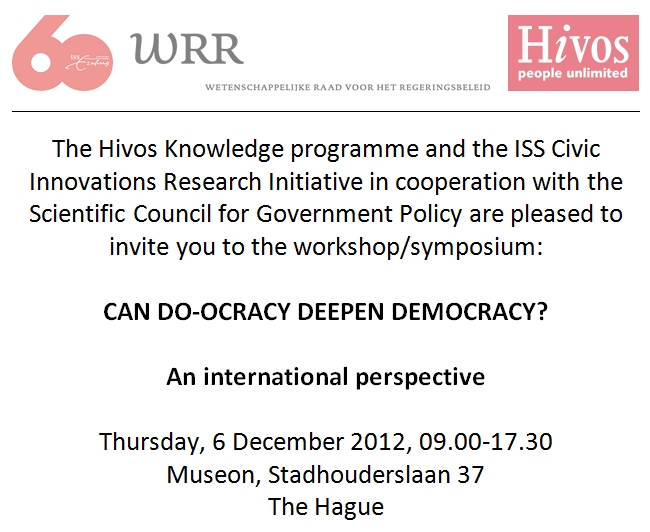
Around the world, a growing crisis of legitimacy characterizes the relationship between citizens and the institutions that affect their lives. Citizens speak of mounting disillusionment with government and the institutions of representative democracy. Less visible, but no less relevant and equally global in scope, has been the rise of a new generation of self-organizing citizens that operates outside the formal spheres of government.
Governments and their formal partners in civil society are trying to figure out how to deal with these empowered and self-confident citizens. In its latest report “Confidence in Citizens”, The Dutch Scientific Council for Government Policy points at the potential of do-ocracy and the challenge for policy makers to nurture its positive effects. The majority of the discussions in the aftermath of the report have been of an instrumental nature: how to deal with the differences in internal logic of hierarchical government institutions and networked citizens?
This conference adopts a broader view. The key question – ‘Can do-ocracy save democracy?’ – essentially seeks to explore if and how do-ocracy can invigorate democratic processes and promote democratic outcomes. Can we read it as a new type of political awareness? What transformative potential does it yield with regard to tough problems such as the future of the welfare state? Which new dilemmas arise when do-ocracy meets democracy and its formal institutions, with regard to representation, sustainability and scale?
From various perspectives, the organizing institutions have been studying the evolution of do-ocracy in a globalizing world. We wish to offer a platform to enable practitioners, academics and policy makers to share and deepen their insights, explore new connections and consider implications for policy, research and social practice.
During the conference, Manu Claeys (stRaten-Generaal) will moderate the workshop ‘Motives for citizen action’
Practical details about the conference and the programme can be found here.
Workshop ‘Can Do-ocracy Deepen Democracy?’

